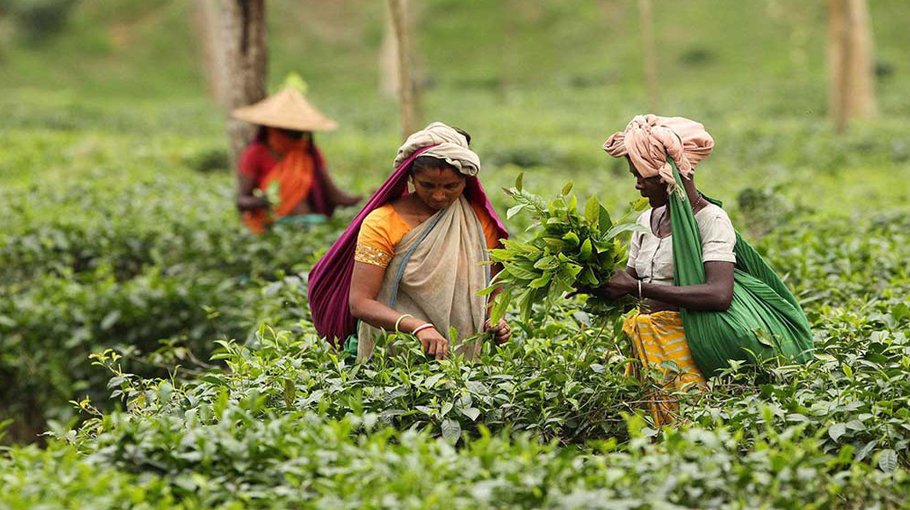Tea workers resume work after 20 days of demos

A weeklong standoff between tea garden workers and owners ended on the prime minister’s assurance that daily wages of the workers would be hiked by Tk 50.
Prime Minister Sheikh Hasina assured the tea garden workers of increasing their daily wages to Tk 170 from 120. After the assurance, the workers began returning to their work on Sunday (August 28), ending a 20 days of demonstrations.
Following a meeting with Prime Minister Sheikh Hasina at her official residence Ganabhaban on Saturday night (August 17), the tea estate owners agreed to raise the wage by Tk 50 from the previous wage of Tk 120.
When the workers received the information of pay rise, they called off the indefinite strike and returned to work.
Although most of the tea gardens were closed on Sunday due to the weekly holiday, workers of a number of tea gardens joined their work in the morning.
Raju Goala, president of Bangladesh Tea Workers’ Union in Sylhet Valley, said that most of the tea garden workers joined their work on Sunday while some workers stayed home for weekend holiday. They are expected to join their work from Monday (today).
Of the 23 tea gardens in Sylhet, nine reopened on Sunday, while the rest were on their weekend holiday.
Bijoy Hazra, president of Bangladesh Tea Workers’ Union in Balishira Valley, told media that the wage has been increased to Tk 170 at the intervention of the prime minister on Saturday night.
“Following the announcement, we discussed with different valley and panchayet committees. Everyone has shown interest to resume work accepting the prime minister’s proposal. Despite it being a holiday on Sunday many people have joined work. The tea garden workers could not join at some factories as there were already old leaves in stock and some did not join work as it is a holiday. The work will begin at full swing on Monday, we hope,” he said.
Nripen Paul, acting general secretary of Bangladesh Tea Workers Union, said that the tea garden workers have accepted the daily wages fixed by the prime minister although they demanded Tk 300 as per day wage.
According to him, Prime Minister Sheikh Hasina’s intervention in persuading the owners of the tea gardens to hike the daily wages to 170 have been welcomed by the tea garden workers who have been staging demonstration for wage hike.
Prime Minister’s Principal Secretary Ahmed Kaikaus said that the daily wages for the tea garden workers have been set by the prime minister on behalf of the workers after the meeting held in Ganabhaban.
He further said that apart from this, the other facilities for the workers will be increased proportionately. Ration facilities for subsidized prices will be increased too. Medical facilities, pension for retired workers, educational expenses for the wards of tea garden workers, maintenance, expenses on grazing land, workers welfare programme for free housing and upkeep, will go up as well.
The tea garden workers had been at loggerheads with estate owners over their daily wage of Tk 120. They demanded an increase of their wage to Tk 300, with inflation rising and the currency depreciating.
About 150,000 workers of 167 tea estates across the country at one stage went on an indefinite strike to press for their key demand.
Initially, the tea garden workers abstained from work for two hours a day for four days before launching a full-scale strike on Aug 13.
Some of them went back to work after the authorities assured them of Prime Minister Sheikh Hasina’s intervention to end the impasse and the owners offered a Tk 25 rise in their daily wage to Tk 145.
However, they then rejoined the others on strike as there was no sign of assurances they could rely on, the protesters said.
The stalemate eventually ended through Sheikh Hasina’s intervention on Saturday as the workers agreed to a daily wage of Tk 170.
Bangladesh is producing a record amount of tea every year through the toil of the tea workers. In 2021, a record 96 million kilograms of tea was produced in the country due to the hard labour of the underpaid tea workers.
Although two agreements on increasing wages were signed, the fate of more than 1.5 lakh tea workers in the country hasn’t changed a bit.



